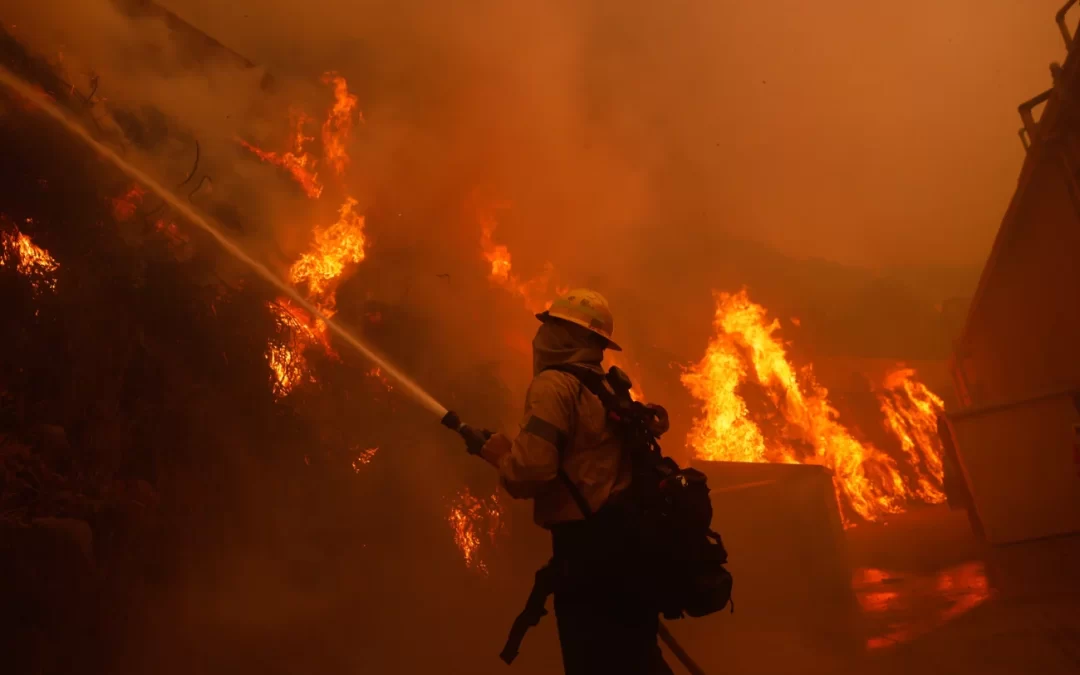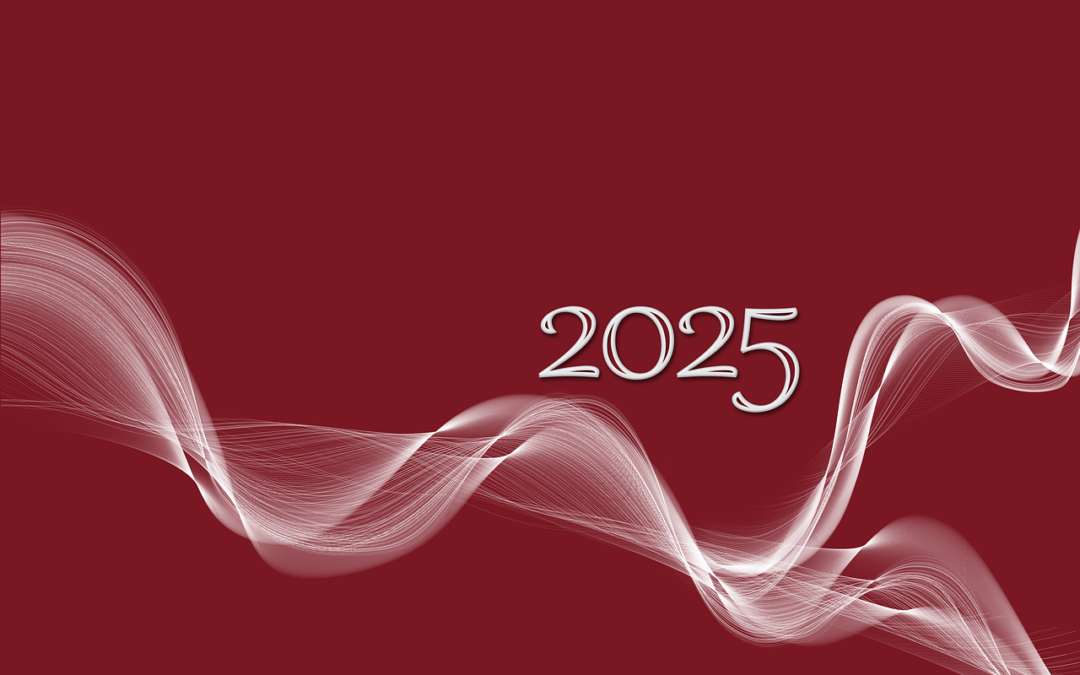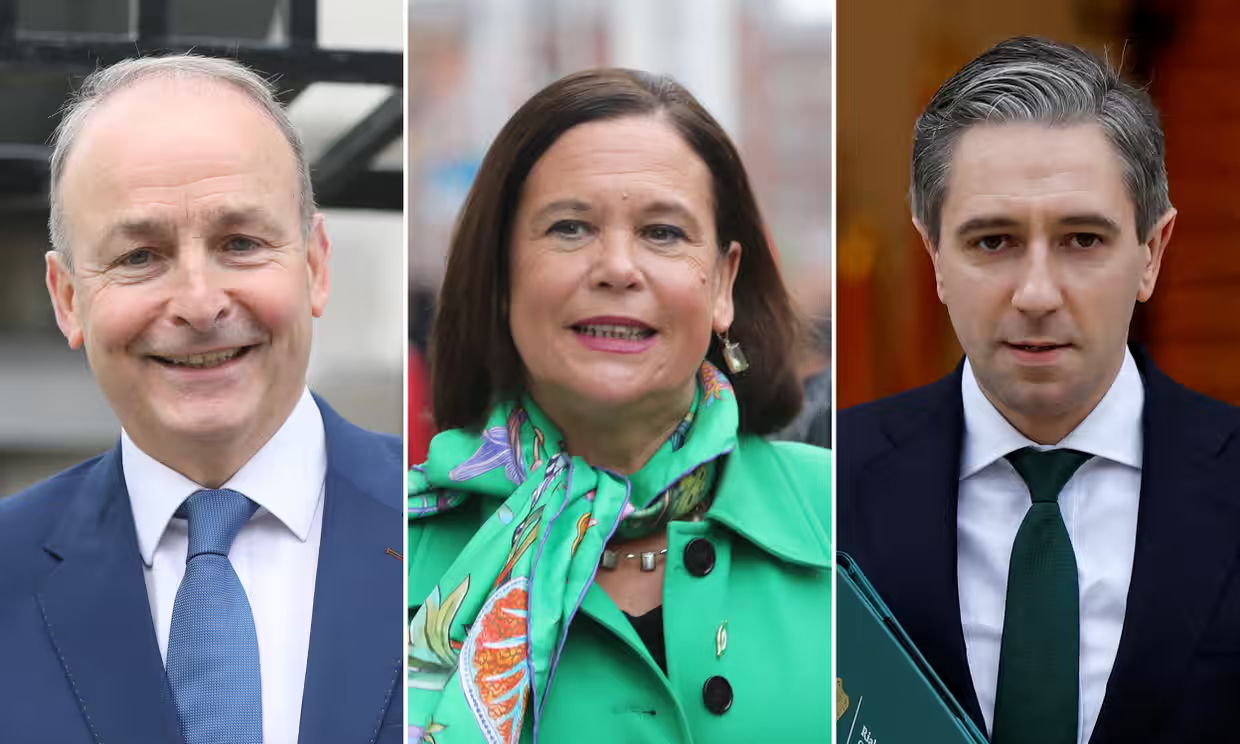
Letter from America - Los Angeles on Fire!
Los Angeles on Fire!
When we arrived in California years ago, we had never seen a motorway or freeway before, except on television. The Dublin to Naas dual carriageway was the closest thing we had to an Irish highway at the time.
I was terrified of them and tried my best to stay clear of them. I was successful at first, but that quickly ended when I accidentally drove up an on-ramp. There was nothing to do but go with the flow and then we were on the freeway! I had a death grip on the steering wheel and was bent over it. I was sweating! I stayed in the slow lane and kept driving. We knew we had to drive out on an off-ramp as soon as we could or we would end up in San Francisco.
Finally, I managed to escape the freeway at a place called ‘Pacific Palisades’. You may recognize the name because it is now a household name around the world.
In those early days we thought we were in Heaven on Earth. The weather was perfect every day and there was a culture of convenience. Unfortunately, it was short-lived, and our honeymoon came to an abrupt end one day when there was an earthquake. We had the TV on and the news reporter quickly ducked under the news desk. Our building was rocking back and forth but it remained intact. You would think the shaking would never stop, but eventually it did.
It rained a lot during our first winter living in Los Angeles, resulting in landslides and mudslides and the destruction of several homes.
Although there had been some significant damage from wildfires in our early days in California, things got worse over time. Wildfires are more frequent and dangerous today than ever before. Global warming probably has something to do with it. We lived on the edge of the woods for many years, completely unaware of the dangers of fire. We bought a house by the ocean twenty-five years ago so that we could be closer to our workplaces, and we are there still. We didn’t realize at the time that there was a big advantage to that – wildfires are rare here, because the mountains are not close to us. There was a terrible wildfire in this county (San Diego) in 2003, and many of my colleagues lost their homes in that wildfire – the ‘Cedar Fire’. My son and I had to drive by that wildfire on our way home from a road trip. It was terrifying to be so close to flames that touched the sky itself. The air was hot and there was a strong smell of burning. We could also hear the roar of the fire. When you see and hear a fire that big and so close, you have a new understanding of the danger, scale and scope of a fire. That understanding stays with you forever.
No doubt, you saw the fires in Pacific Palisades and Altadena on TV, and you heard all the news about it. The fires are tearing apart and destroying everything in their path, small, medium or large, and those suburbs are right in the way. Between Pacific Palisades and Altadena, more than 12,000 buildings have burned to the ground so far. At least 25 people have died so far. It is a terrible disaster that has affected many families, and it will be very difficult for them for many years to come.
There are two main reasons for these terrible fires. First of all, we have been suffering from a drought for the past 8 months. Therefore, all the vegetation is very dry. Secondly, the dry desert winds (‘Santa Anas’) have been blowing in their wake for the past week, at high speeds of up to 160 km per hour. In such climatic conditions, it only takes one spark to ignite a fire and that is exactly what happened in these cases.
It is always difficult to deal with disasters of this magnitude as they occur, and although the fire crew was on the scene quite quickly, and although firefighting aircraft were dropping relentlessly, various problems soon became apparent. The fire crew does not have sufficient resources, due to the fact that its budget allocation has been cut year after year. In addition, some of the fire hydrants further up the mountains dried up, so that water was not available to firefighters at a critical time. The residential water system is not designed to cope with such demands being placed on it. Many investigations will be conducted to discuss and understand these issues to see what we can do to improve matters.
There are currently 8 fires burning in the region, and thousands of firefighters are working hard to put them out. Firefighters have come from all over to help – from California, other states in the United States, Canada and Mexico. FEMA (the Federal Emergency Management Agency) is on the ground providing care, advice and financial assistance to victims of the disaster. Hundreds of police (LAPD) and National Guardsmen are patrolling the area, preventing crime.
It is a very difficult time for those who have lost family members or friends. It is not easy for those who are now homeless, especially those who were burned out of their homes. Almost 100,000 people are currently under evacuation orders, and it is very difficult for them to find shelter. It will take a long time to clean up, and many years to rebuild.
But the reality is that Southern California is under constant threat from natural disasters, including earthquakes. The landslides, floods, and mudslides are likely to get worse over time. This will increase the challenges we face and make it more dangerous to live here. While it is Heaven on Earth most of the time, it is Hell on Earth at other times!







